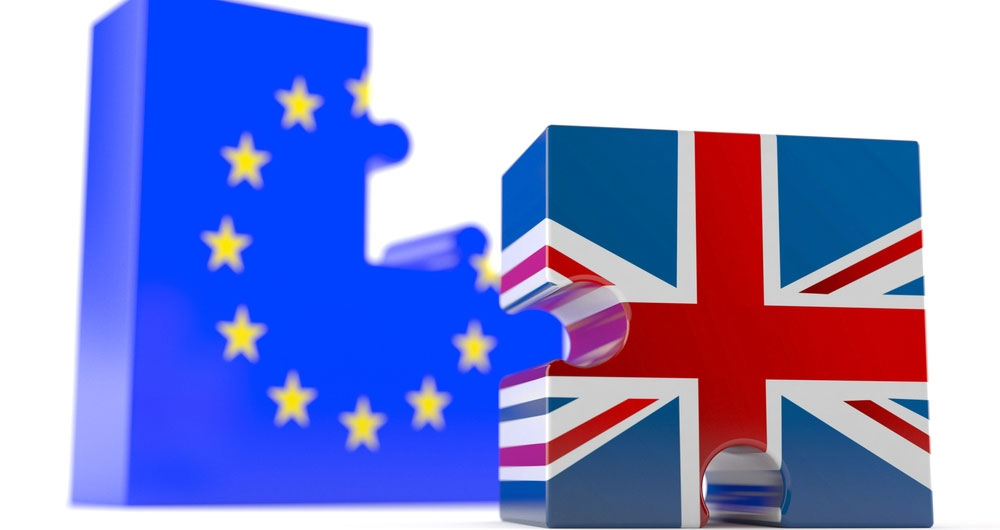The most significant changes made to the documents that were published in November 2018 are:
a) a revision of the protocol on Ireland / Northern Ireland, also known as the Irish “backstop”, which is part of the legally binding text of the Withdrawal Agreement.
b) changes to the non-binding Political Declaration which will form the basis of the negotiations for a future trade agreement between the EU and the UK.
But what does this mean and what do the two documents contain? Find out in our FAQs - jump to an answer by clicking the questions below:
How will this “deal” be approved?
What happens if the deal is rejected by Parliament?
Can the UK Parliament amend the “deal”?
The Withdrawal Agreement
What is the Withdrawal Agreement?
How long will the implementation period be? Can it be extended?
What is the Irish/ Northern Irish protocol?
Do the people of Northern Ireland have a say over the protocol?
What happens to freedom of movement of people?
What happens to budget allocation during implementation period and if the Irish protocol comes into effect?
Do we get the rebate?
What happens to direct payments and CAP?
Can we enter into new Free Trade Agreements (FTAs) during the implementation period or during backstop?
Will EU FTA’s continue to apply to the UK during the implementation period or the backstop?
Political declaration
What is the Political Declaration?
The EU and UK envisages an “ambitious” future trading relationship which is ‘as close as possible’, but how close is as close as possible?
When will the EU and UK seek to negotiate and agree their future relationship?
What about freedom of movement?
How will this “deal” be approved?
The two documents (the Withdrawal Agreement, including the Ireland / Northern Ireland protocol, and the Political Declaration) must now be ratified by the respective UK and EU Parliaments.
In the UK, the government has published the European Union (Withdrawal Agreement) Bill, also known as the WAB. If the Bill successfully passes scrutiny in the Houses of Parliament (both the Commons and the Lords) and receives Royal Assent, the UK will leave the European Union in an orderly manner.
On the EU side the European Parliament will also need to give its consent on the final deal.
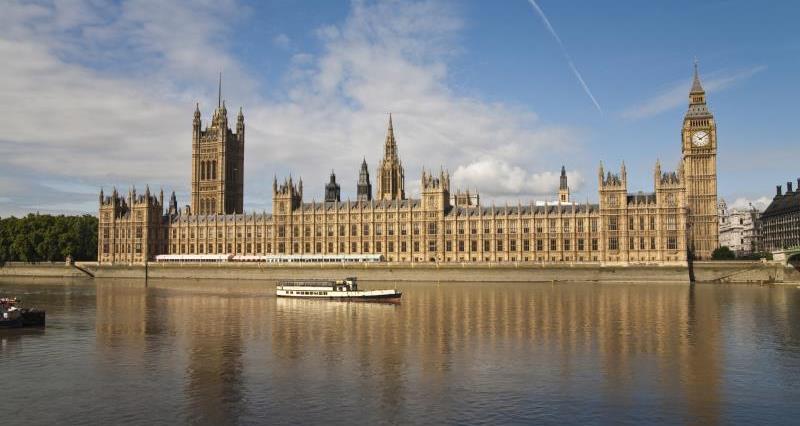
What happens if the deal is rejected by Parliament?
If the EU (Withdrawal Agreement) Bill fails to secure a majority support in the Houses of Parliament the terms of our departure from the EU remain unclear.
The UK Parliament has already forced the Prime Minister to write a letter to the EU requesting an extension to the Article 50 negotiating period to 31 January 2020. The request is still being considered by the EU and no decision has yet been made whether to grant the UK an extension to its membership beyond 31 October 2019. In the event that an extension is not unanimously agreed by the EU, the UK will leave the EU with no deal in place on 31st October 2019.
Can the UK Parliament amend the “deal”?
No, it has no power to directly amend the deal with the EU. It is the government that negotiates international treaties on behalf of the nation.
However, it can reject this deal and instruct the government to return to negotiations and change the terms of the deal with the EU. More likely however would be for Parliament to seek to amend the way in which the UK implements the deal through its domestic legislation.
In other words, it can place demands on the UK government by amending the Withdrawal Agreement Bill. Amendments that may be sought include a role for Parliament in influencing and agreeing the terms of the future relationship, the potential for a confirmatory second referendum, or a role for Parliament in requesting an extension to the 14-month implementation period ahead of the future relationship coming into force.
Parliament could also amend the Bill in a way which would make it incompatible with the Withdrawal Agreement itself, which would, in practical terms, invalidate the deal the EU and UK have agreed.
The Withdrawal Agreement
What is the Withdrawal Agreement?
The Withdrawal Agreement is a legally binding international treaty between the EU and UK. Essentially it is the legal divorce between the two parties and primarily covers six main areas:
1. Citizens’ rights – provides the ability for citizens in either jurisdiction to apply for settled status.
2. Separation provisions – such as what happens to goods already on the market (eg in transit) at the point of exit.
3. The financial settlement – the so called ‘divorce bill’, it does not put a value on the figure but sets the mechanism for working it out. The National Audit Office expects this to be in the region of £39 billion, although this figure may have dropped a little to take account of ongoing payments made during the current extension.
4. Implementation period - the Withdrawal Agreement provides for an “implementation period” (also known as a “transition period”) of 14 months, starting from the point of exit (31 October 2019) and ending on 31 December 2020.
5. Institutional arrangements – these set out how the agreement will be governed.
6. Protocols on Cyprus, Gibraltar and Northern Ireland.
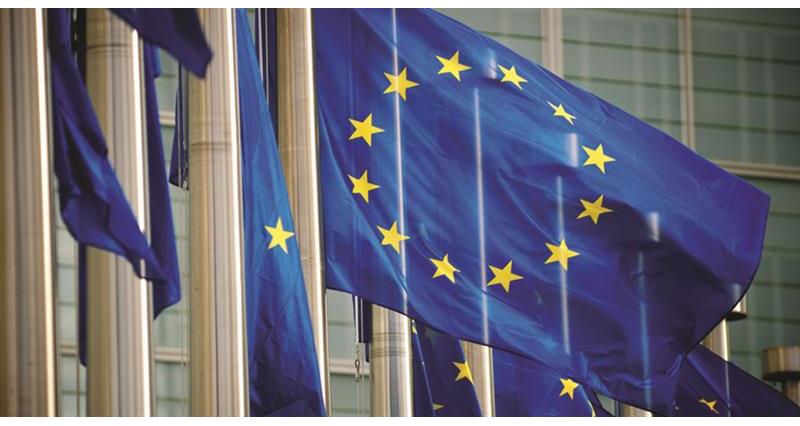
How long will the implementation period be? Can it be extended?
The implementation period as provided for in the Withdrawal Agreement will last 14 months, starting from the point of exit (31 October 2019) and ending on 31 December 2020. If the future relationship negotiations have not concluded there is scope for the Implementation Period to be extended once for a period of one to two years.
The EU – UK Joint Committee which oversees the implementation period (made up of EU and UK representatives) must agree an extension of the implementation period before 1 July 2020.
What is the Irish/ Northern Irish protocol?
The Protocol on Ireland / Northern Ireland has been agreed to ensure that in the event that the future relationship between the UK and the EU is not in place by the end of the implementation period, the Good Friday Agreement will be upheld and there will be no hard border on the island of Ireland.
Customs: The Protocol states that NI will remain a part of the customs territory of the UK, but it will apply EU customs legislation, including the application of EU tariffs. This means that there will be no tariffs nor quantitative restrictions applied between NI and the EU.
Goods that move directly from another part of the UK to NI will not attract any duty unless there is a risk of said goods moving onward into the EU, or being processed into another product and then moving into the EU.
In some instances, this may be achieved by traders paying duty and then receiving a subsequent rebate if the goods have not moved onwards. Goods from the UK that move to NI and are deemed to be at risk of moving to the EU will have the appropriate EU customs duty levied. There are criteria given for which products are at risk of onward movement to the EU, but this will be further defined by the EU and UK jointly during the transition period.
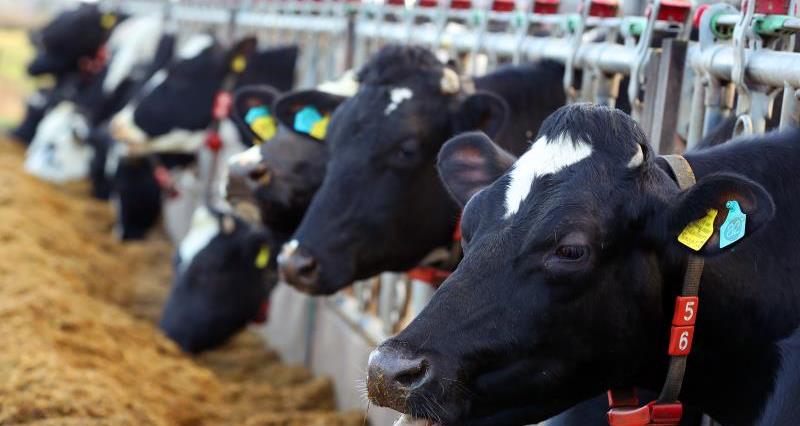
Goods coming from outside the UK and that either remain in the UK or move to NI and stay there will have the UK’s tariff levied upon them. Goods that come from outside of the UK and then move to the EU via NI or other routes will have the EU’s tariff applied to them.
There will be “unfettered access” for goods moving from NI to other parts of the UK, although the government has recently confirmed that additional paperwork will be required, and associated fees charged, for goods traded between NI and GB. While not detailed in the protocol, there will be a need to differentiate between where goods are destined to ensure the correct tariff is collected.
Regulation: NI will continue to apply a number of EU rules, for example those related to food safety, pesticides and animal welfare. Regulatory checks on goods moving between NI and the rest of the UK will be minimal and the UK and EU will jointly agree ways of these checks taking place away from ports and airports.
Application of EU laws in NI will not prevent access of NI goods to the rest of the UK market. The UK or NI Government will govern areas of regulation that are not listed in the protocol, for example most elements of agricultural policy.
Do the people of Northern Ireland have a say over the protocol?
Yes but there is no “upfront consent” for the people of Northern Ireland ahead of the Protocol coming into effect. In effect the earliest opportunity for consent will be November 2024.
The protocol will apply at the end of the transition period in full if no future UK-EU relationship is agreed to come into force that supersedes it in whole or in part. If the protocol does come into force then it will apply for an “initial” period of four years. Within 2 months of the end of that period, the Northern Ireland Assembly will vote to ascertain if there is consent for the provisions related to customs, VAT, state aid and regulations to continue to apply.
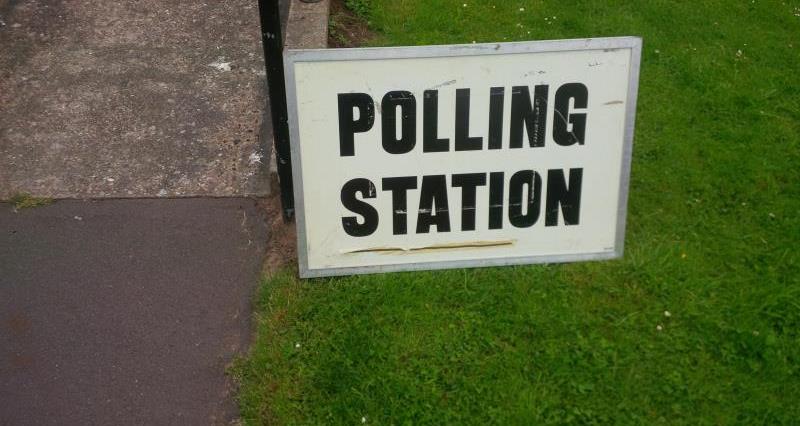
If the Northern Irish Assembly votes by majority to maintain the elements of the protocol, the elements will continue to apply for a further four years following that decision.
If in fact there is cross community support for maintaining the protocol meaning that there is a majority of those Members of the Assembly present, including a majority of unionist and nationalist designations present and voting, or there is a weighted majority (60%) of the Members of the Assembly present and voting, including at least (40%) of each of the nationalist and unionist designation present, the protocol shall remain in place for a further eight years.
If the is a majority in favour of ending the protocol, it will cease to apply after two years from the end of the initial four (or subsequent four or eight year periods). In effect this means that the Protocol could remain in place for an indefinite term for as long as there is support in the Northern Ireland Assembly.
What happens to freedom of movement of people?
During the implementation period: freedom of movement of people remains, UK and EU citizens are free to travel, live and work in either jurisdiction as they are now. All UK nationals residing in the EU, and EU citizens living in the UK at the end of the implementation period, will be protected by the same rights they have now.
These rights extend to these citizens’ families and family members who may still move freely to reside with others as under current EU law.

EU citizens, UK citizens and their respective family members who move to the UK or an EU state will be able to acquire permanent residence in the host state if they reside there for a continuous period of 5 years. This includes people who move to a host nation before the end of the implementation period. Once they reach the 5 year threshold they too will have the right to reside permanently.
Irish / Northern Irish Protocol: There is nothing to stop EU citizens travelling across the Irish border as the Common Travel Area between the UK and Ireland would remain in place. This does not extend to rights to jobs or social benefits, and the UK would seek to administer immigration through controls in the workplace and welfare regime.
What happens to budget allocation during implementation period and if the Irish protocol comes into effect?
Implementation period: For the year 2020, the UK shall contribute to and participate in the implementation of EU budgets
If the implementation period is extended the UK would cease to participate in the EU budget as if a Member State at the end of 2020. Instead, the UK would make an appropriate financial contribution for the duration of the extension. The UK-EU Joint Committee would agree the amount and a schedule for making payments as part of the decision on extension.
Irish / Northern Irish Protocol: If the “backstop” is invoked there is no commitment for the UK to contribute to the EU budget. However, if the UK chooses to participate in EU programmes during this time then relevant contributions may be due.
Do we get the rebate?
During the implementation period (31 October 2019 – 31 December 2020) the UK will continue to receive a rebate as we do now. If the implementation period was extended past 2020 the UK would no longer receive a rebate. This is because post 2020 there will be a new EU budget which the UK will not be contributing to.
If the implementation period is extended the UK-EU Joint Committee would agree the value of our contributions based on EU services used, so it would essentially become ‘pay-as-you-go’ and as such we would not be a net contributor so would not be due a rebate.
What happens to direct payments and CAP?
Implementation period: The UK Government has been clear that when we leave the EU we will also leave the Common Agriculture Policy (CAP), however many of the rules relating to the CAP will remain in place during the implementation period (up to 31 December 2020), although this does not apply to the specific regulation governing Direct Payments after 31 December 2019.
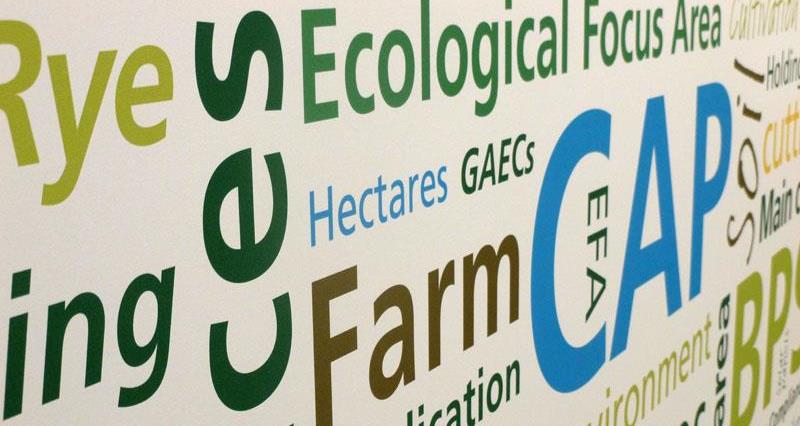
The government will be required to introduce legislation that will continue the Basic Payment Scheme across the UK for the calendar year 2020. The government will also reintroduce an Agriculture Bill that will establish the future of the BPS and the introduction of a new agricultural policy from 2021 onwards.
Irish / Northern Irish Protocol: Northern Ireland would be outside of the CAP and would be free to implement its own domestic agricultural policy as per any policies stemming from the UK’s Agriculture Bill.
Can we enter into new Free Trade Agreements (FTAs) during the implementation period or during backstop?
The UK can negotiate FTA’s but we cannot sign or implement these agreements. Any agreements negotiated would have to come into force after the implementation period.
Irish/ Northern Irish Protocol: Northern Ireland will remain a part of the UK customs union. This means that it will benefit from any international trade agreement that the UK secures. It remains unclear how complex rules of origin will operate in practice and whether the EU will require safeguards against cheap imports entering GB and potentially accessing the EU market through the NI /ROI border.,
Will EU FTA’s continue to apply to the UK during the implementation period or the backstop?
Implementation period: during the implementation period any international agreements (including FTAs) which the EU has negotiated will continue to apply to the UK as if it were a member state. The UK and EU have taken a co-operative approach and provided a deal is concluded the EU will notify third countries of this intention.
In preparation the UK has been engaging with all relevant third countries and the vast majority support this approach. At the end of the implementation period the UK will need to start operating on its own UK only agreements with these third countries.
Political declaration
What is the Political Declaration?
The Political Declaration is a statement of intent from both the EU and UK and sets out how they envisage the future relationship might work once the implementation period (as provided for in the Withdrawal Agreement) is over and the UK is no longer bound by EU rules.
The Political Declaration is not legally binding on either party and the document is not all encompassing; meaning that the future relationship may encompass areas of cooperation beyond those described in the document if it is in their mutual interest.
The EU and UK envisages an “ambitious” future trading relationship which is ‘as close as possible’, but how close is as close as possible?
The UK and EU agree to develop an ambitious, wide-ranging and balanced economic partnership. This partnership will be comprehensive, encompassing a Free Trade Agreement, with zero tariffs, fees, charges or quantitative restrictions across all goods sectors (including agri-food) with appropriate and modern accompanying rules of origin.

The deal struck by Boris Johnson differs from his predecessors (Theresa May) in so far as the political declaration describes the future relationship as “ambitious”, rather than “as close as possible”, which suggests a relationship that is looser than the Future Economic Partnership outlined in the previous political declaration.
The changes to the Political Declaration can be seen to demonstrate the current UK Government’s desire for a looser relationship with the EU than the previous administration, allowing greater freedom to strike trade deals with third countries.
When will the EU and UK seek to negotiate and agree their future relationship?
If the Withdrawal Agreement is passed, negotiations on the future relationship will begin on 1 November 2019. It should be noted that if no FTA is agreed between the EU and the UK by the end of the implementation period the new special arrangements will apply to NI only, and so the rest of the UK would effectively be subject to a “No Deal” Brexit at that point.
The future relationship between and EU and UK will be negotiated after the UK has officially left the EU, this is because the EU cannot negotiate trade deals with member states. In the Political Declaration both the EU and UK commit to beginning the formal process of negotiations as soon as possible after the UK leaves with EU, with the aim of the new arrangement coming into force by the end of 2020.
Each side commits to “expeditiously” identify those areas that;
a) are likely to require the greatest consideration and the associated legal and technical issues that will need to be addressed, in order that the necessary technical preparations can be made on both sides;
b) draw-up a full schedule for the negotiations, taking into account relevant internal processes; and
c) consider the logistical requirements of the formal negotiations.
Reviewing progress: with the aim of agreeing actions to move forward in negotiations on the future relationship both Parties will convene at a high level in June 2020 for the purpose of “taking stock” of progress.
What about freedom of movement?
The political declaration makes it clear that the freedom of movement of people will end after the implementation period. In the Declaration both parties commit to the aim of visa free travel for short term visits and suggest similar arrangements would apply to students, exchanges or researchers. However, there is no commitment about those citizens wishing to live and work long term in either jurisdiction.
NFU members: Read the NFU's analysis of the Article 50 Withdrawal Agreement and Political Declaration on the Future Relationship here
This briefing is accessible to NFU members only and you will be asked to log in.
How to log in: Use your membership number or the email address associated with your membership to log in. If you've forgotten your password, you can click here to reset it or contact NFU CallFirst on 0370 845 8458.
Read more:
